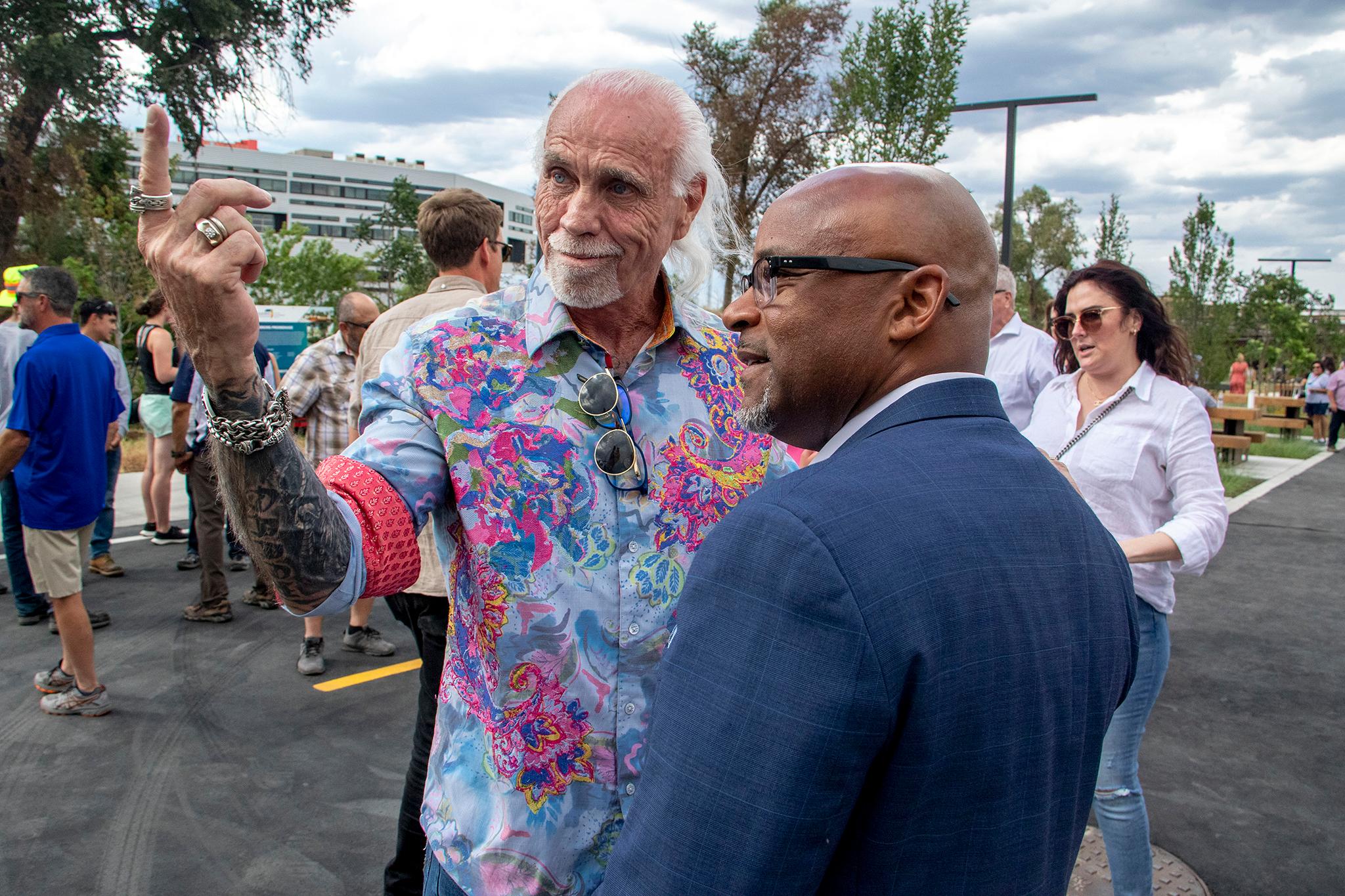"I have been looking forward to this for now for ten years," Mayor Michael Hancock said, just before he cut the ribbon on the new boardwalk.
The structure stretched toward the sky, casting shadows on new bike lanes and playgrounds on the now-complete Arkins Promenade.
Hancock used his time with the microphone to connect a series of projects completed during his time in office, which will soon come to an end. He widened I-70, creating more traffic capacity between new development on Brighton Boulevard and his "aerotropolis." As he spoke, workers raised apartments in the background. PepsiCo had just announced an enormous bottling facility near the airport. This new park, which took over a once-busy street, represented another step away from the area's industrial past.
Years ago, he told the crowd, all of this was just a dream.
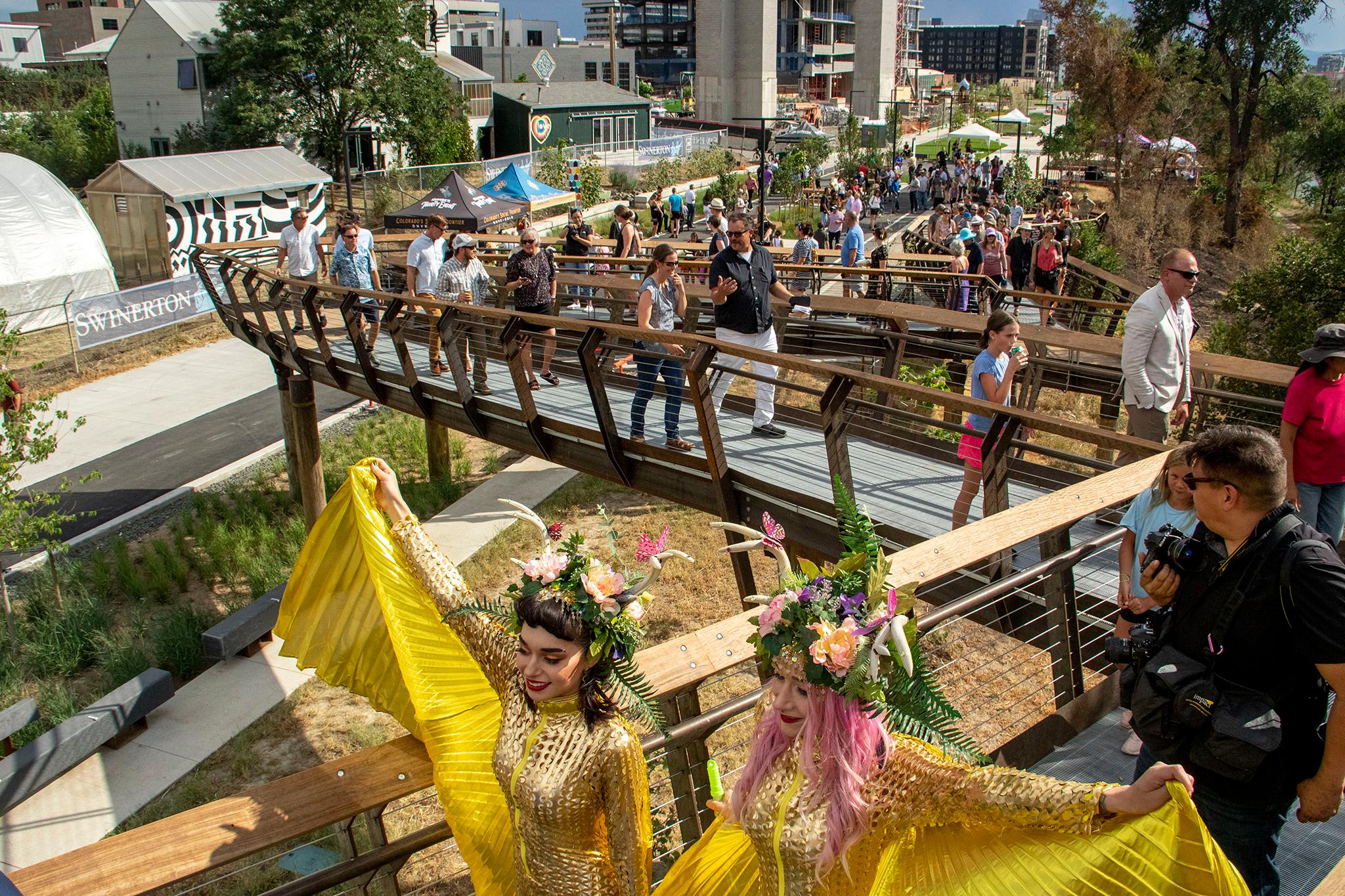
"We felt at the time, if we dropped a pebble in the water, the ripples would attract more dollars," he said. "It has done nothing but attract multi-billion dollars worth of investment ... Look at the new buildings."
Then, Hancock invited another speaker to the mic: Bernard Hurley, a developer who began buying up property here more than 20 years ago. Hancock said Hurley was critical to the promenade's success.
"It's been a long way since 1997," Hurley said. "It's been amazing to see what's happened here since then."
In particular, Hurley's dominance over the property at this end of Arkins Court, just south of 38th Avenue, paved the way for this new corridor.
It's no secret that real estate is tight in Denver, and the city's Parks and Recreation Department must deal with those forces. Some new park plans are held off for a decade or more as the city waits to pounce on desired parcels.
Gordon Robertson, Parks and Rec's planning director, told us the Arkins project has been in the works for at least six years. It was a long road to make it happen.
"Oh my God, yeah. It was a saga," he told us.
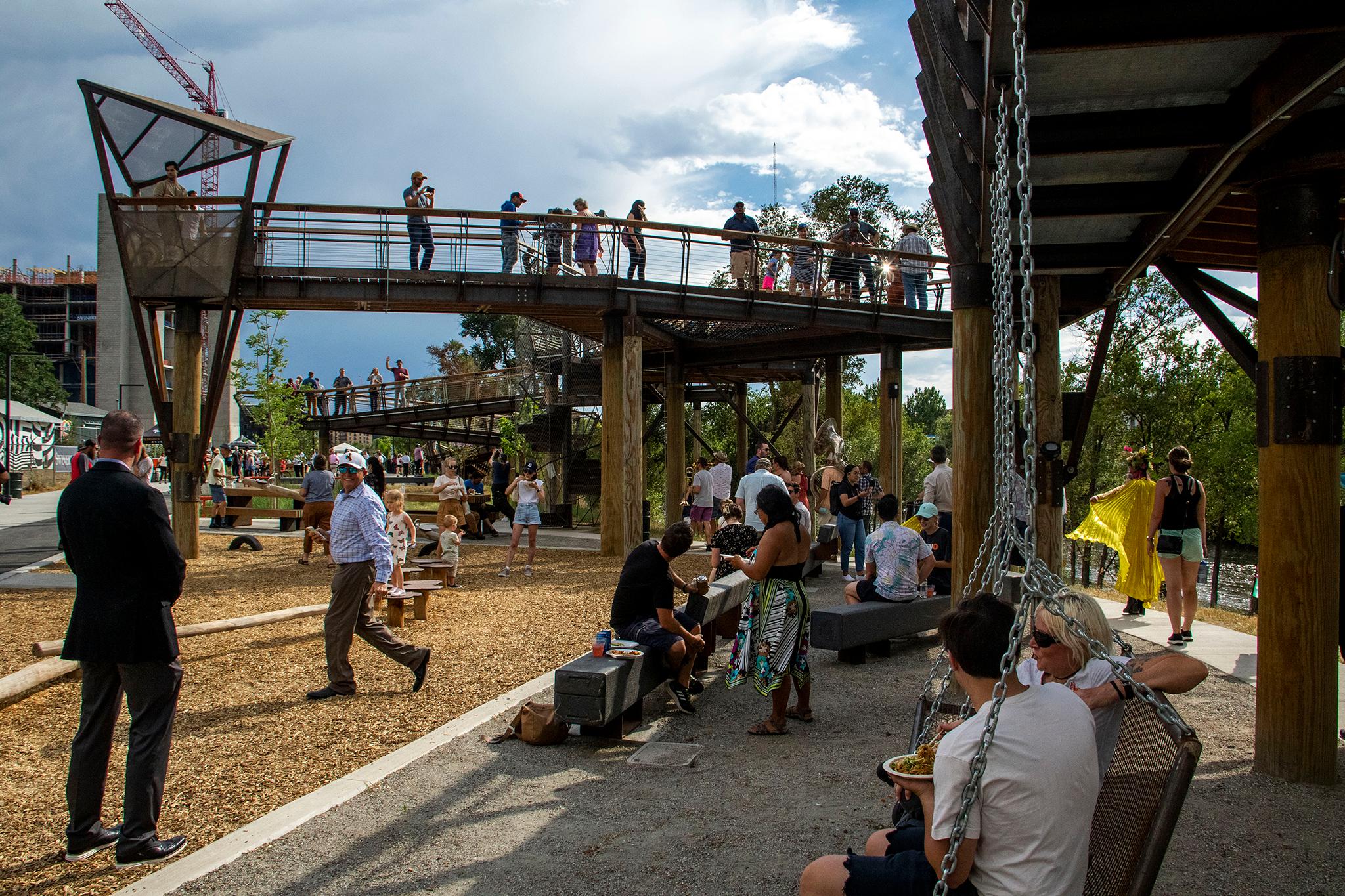
First, they had to convince Denver's Department of Transportation and Infrastructure to close down the existing road, a busy street that fielded dozens of RTD buses and speeding cars every day. Then, the city needed sign-offs from every property owner along the way. When they started talking about the promenade, the vacant land and warehouses lining Arkins were owned by a handful of different people and companies.
"We never thought it would happen. We said, well maybe some day. And then Bernard Hurley ended up buying all this property," Robertson told us. "He was involved in the planning of this park and the idea this might happen, and he said, 'Hey, I own all the frontage. You can have it.'"
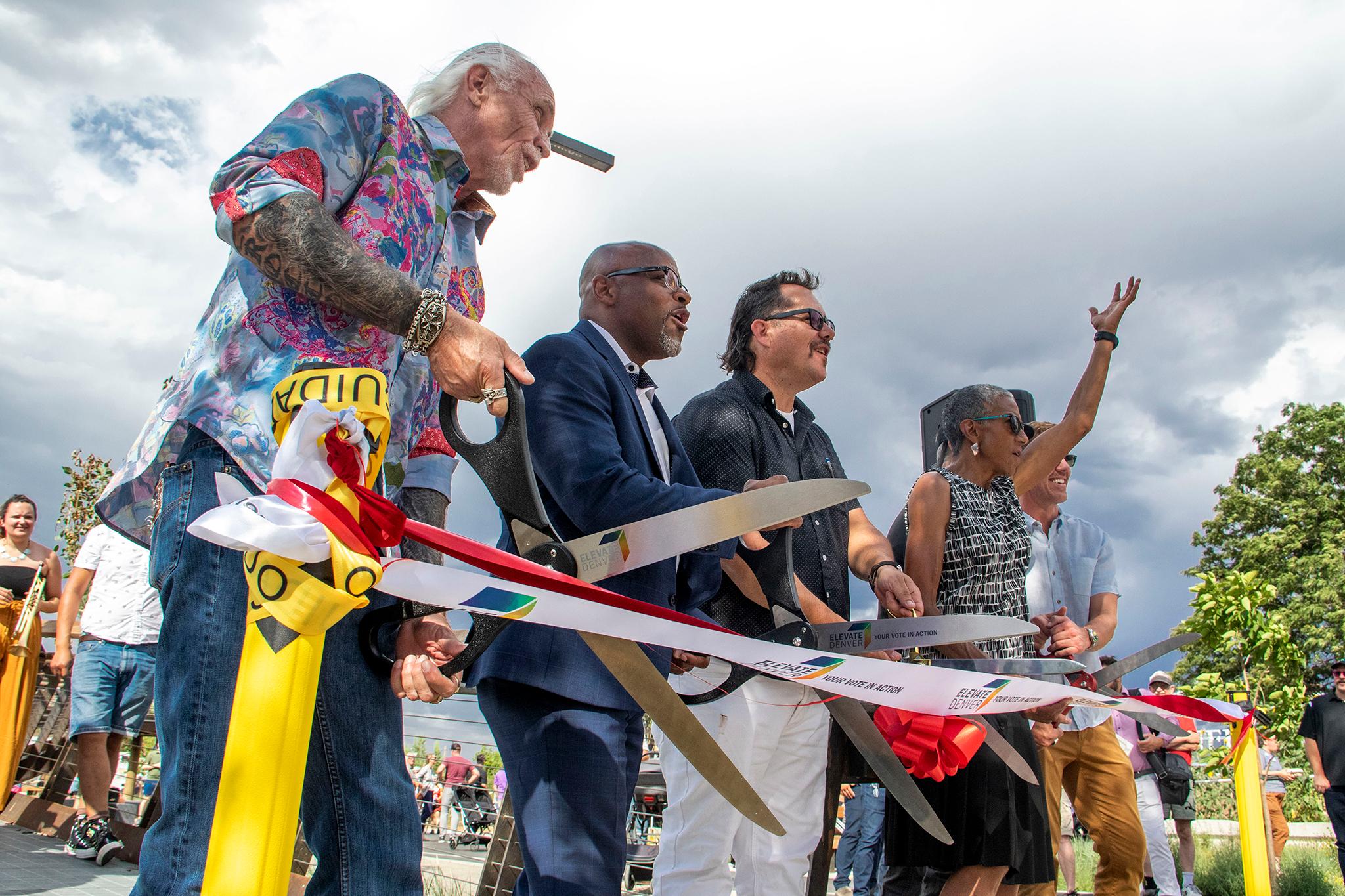
Hurley has long talked about his vision for the riverside, a commercial district that would replace the once-unused grassy slope to the water. He once floated the idea of a giant trash wheel that would help clean the water, though he said that plan is off the table for now.
"We want to create a sense of place that's iconic, and one of those lasting legacy places to celebrate the river," he told us. "We're gonna activate the promenade completely."
He said he's working towards retail and housing all the way down the block, most on property he's been accumulating over the years.
While Hurley's takeover helped grant Hancock's wishes for the area, it's rubbed some people the wrong way.
Ventura and Rosa Nevarez once owned an auto shop a few blocks from the river. It was the family's bread and butter as their children grew up nearby.
In 2014, Hurley signed a contract with the family to purchase their land, then contracted his own environmental testing company to do the due diligence for the transaction. His company said they found contamination that had leeched into adjacent properties that they already owned, and then took the Nevarez family to court, hoping to force a sale. Hurley and the family settled that case, and the Nevarezes resisted more of Hurley's attempts to buy their land. The developer eventually got his way, purchasing the parcel for $1.7 million in 2018.
While the Nevarez family's land was not adjacent to the planned promenade site, the struggle over their property was part of Hurley's larger vision to conform the industrial area to the other changes sweeping Brighton Boulevard.
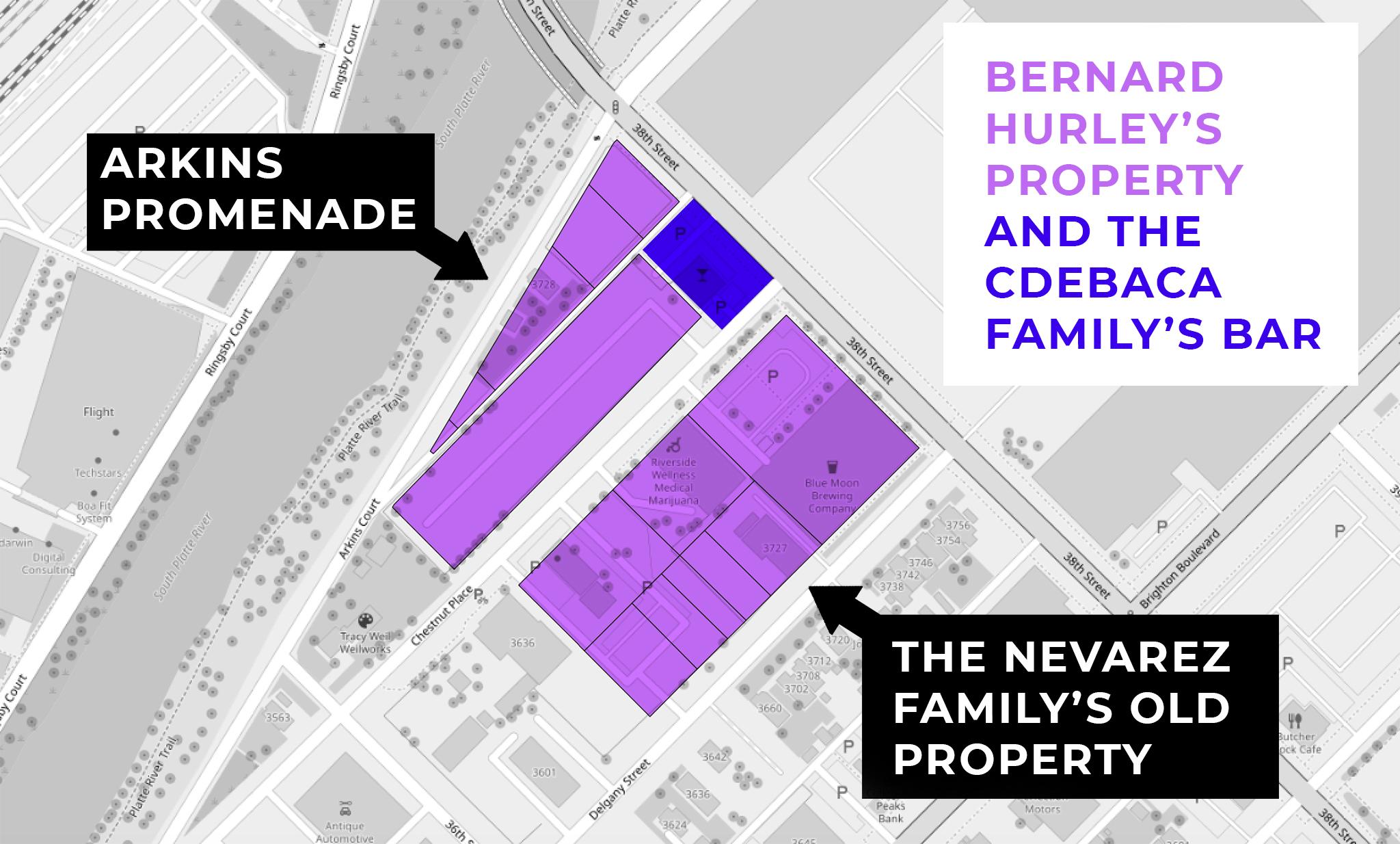
Vanessa Easley, Ventura and Rosa's daughter, said the sale is still a pain point for her family.
"We finally sold because we kind of had to," she told us. "It is progress, but you're also displacing a lot of people that lived there for 50, 60 years."
Easley said the changes in the neighborhood were generally needed, it was dangerous and underdeveloped when she grew up nearby. She just wishes those improvements benefitted the people who lived there, rather than push them out.
Just north of Easley's old family property, one last landowner is still holding out against Hurley's overtures. Karl CdeBaca bought the bar known for decades as the Welcome Inn in 2014. During the pandemic, he gave the water hole to his nephew's wife, Kourisa CdeBaca, who reimagined the space as an art bar and renamed it the River.
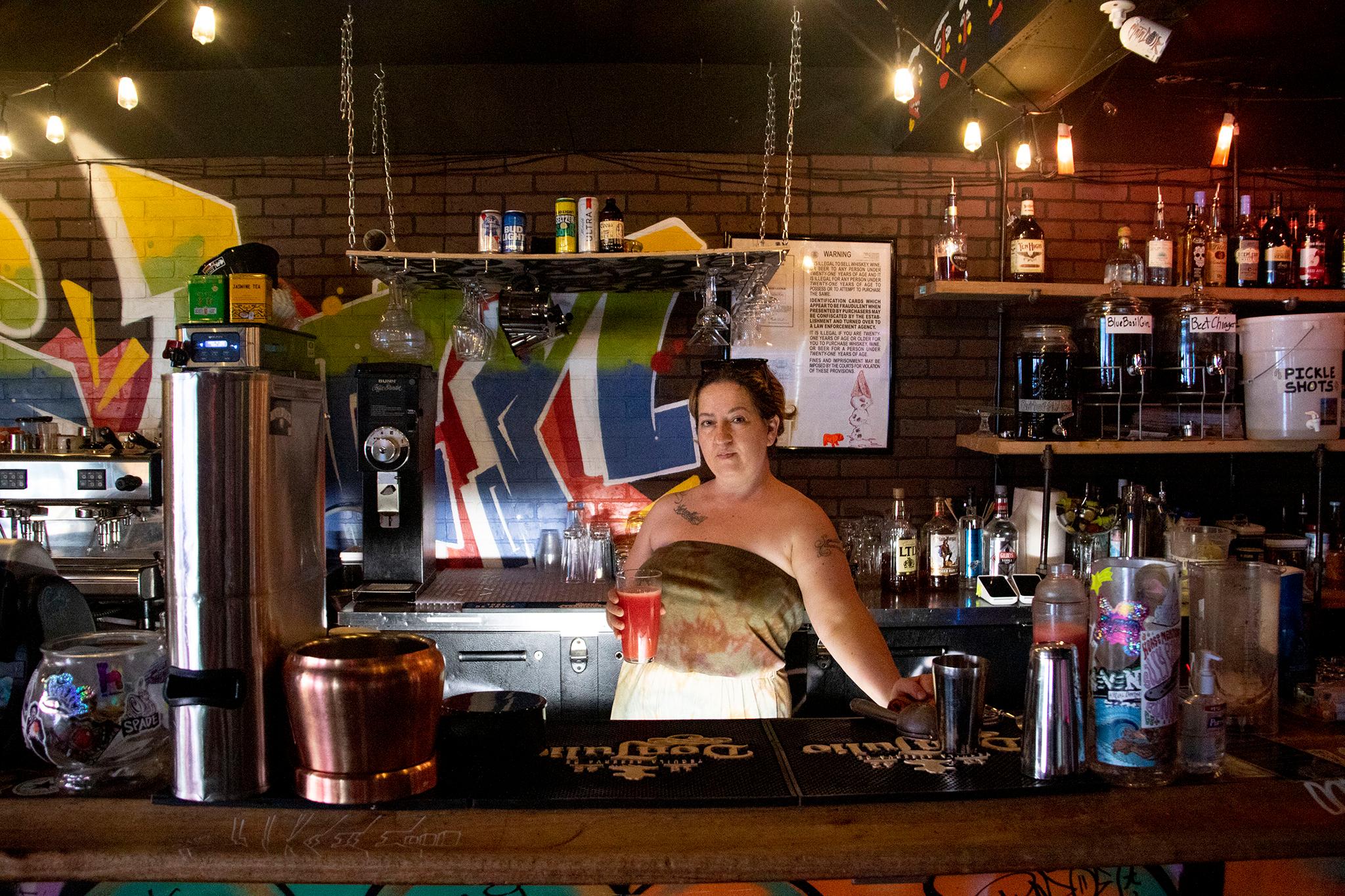
"Bernard has tried to buy this property from my uncle for f****** years, dude," Kourisa said as she opened the taproom on Saturday. "Uncle Karl's just held on and held on."
The property has been for sale for years, priced way above market value, Kourisa said, but her uncle has no appetite to work with Hurley. In the meantime, she said she's trying to line up money to buy it from him. She imagines an affordable housing building aimed at artists, with a coffee shop and dispensary on the ground floor.
Karl might have beef with Hurley, but Kourisa said she's fine to coexist with her neighbor. And the development nearby, both the rising apartment buildings and the growing promenade, are good omens for her business. The neighborhood locals who once frequented her bar have evaporated as the area became more yuppie-centric. She's doing what she can to make the space attractive for that new clientele.

"The change on the neighborhood, personally, I feel a certain way about it. But as a business owner, I feel really great about it," she said. "I don't mind the change. My husband grew up poking deadies (dead bodies) at Curtis Park. He don't mind the change."
While families like the Nevarezes did not have a chance to stick around and enjoy Brighton Boulevard's safer, shinier transformation, Kourisa said she's proud her family still has a presence amid all the growth.

